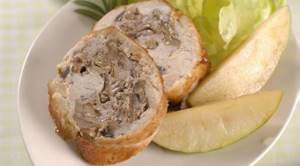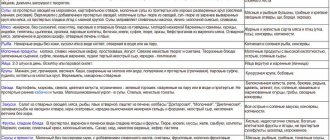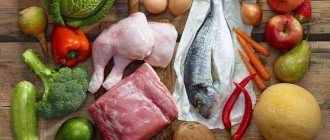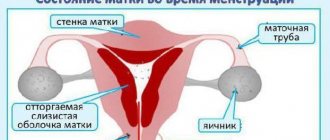Probably, almost every person who has ever followed a strict diet has “broken down” and then reproached themselves for their weak willpower. Today, the days of breakdowns have been given a scientific name - cheating (load day), when you can allow yourself to forget about the diet and eat whatever your heart desires. And the best part is that after this you don’t need to suffer from remorse, because even nutritionists approve of such days.
The word “cheating” is translated from English as fraud, scam. That is, a kind of deceptive day for the body that is on a diet. It is simply necessary for strict and monotonous diets. Eating goodies on fasting days should be perceived as a method that helps maintain fortitude and easily withstand further difficulties of food restriction. In addition, this trick allows you to “push” your metabolism and maybe even get your weight off the ground.
What is cheating
Cheating is literally translated from English as “fraud, cheating.” By allowing yourself to periodically enjoy your favorite dishes, you deceive the body and provide psychological relief. Any diet will not seem complicated or rigid if you know that at some point you can relax a little.
To effectively lose weight and stabilize your weight, keeping it within certain limits, you must constantly adhere to the principles of a healthy diet. Temporary diets never produce long-term results. We just need to come to the realization that only we ourselves are responsible for the beauty of our own body, for health and well-being. But on the way to this, thoughts periodically come to mind: “Will I never try my favorite dessert again, will I forget the taste of fast food.” To prevent such torment from stopping you, you should periodically arrange a cheat mill for yourself - a loading day.
All fans of temporary or permanent diets know what fasting days are. But loading on a diet is a relatively new concept. Cheating is a fasting day in reverse. This concept appeared in dietetics in 2005. It was introduced by American doctor Paul Rivas. In his own book, he explained in detail what a metabolic swing is, how important it is to periodically radically change the diet, to give the body a shake-up on the path to effective weight loss.
The only way to lose weight is by maintaining a calorie deficit. You should spend a little more energy than you consume. In this way, metabolism accelerates. Nutritionists and athletes often suggest imagining the body’s metabolism as a stove in which combustion must be constantly maintained.
If you throw very little fuel into it, the fire will not flare up, and if you throw too much wood, the fire may go out altogether. The same processes occur inside us. In order for energy to be burned along with existing fat deposits, you need to periodically change your diet, either increasing or decreasing the calorie content of the foods consumed. If you eat monotonously, your body gets used to it and eventually stops responding with weight loss.
But when you suddenly change your diet and allow yourself some forbidden foods and dishes, your body thanks you for this by actively losing weight.
Cheating goals
By using cheating to lose weight, you achieve the following goals:
- Psychological comfort during weight loss - for many, the diet is accompanied by a bad mood due to the constant desire to eat something tasty, but harmful. Cheating relieves stress and feelings of dissatisfaction, because you know exactly when you can afford a little more than what is allowed,
- Saturating the body with useful substances - even with the most balanced diet there is a risk of vitamin deficiency. By arranging a cheat mill for yourself, you get a lot of vitamins, microelements, provoke the active production of amino acids, which are vital for every person,
- Acceleration of metabolism - cheating allows you to lose weight faster, avoiding the “plateau” effect,
- Reducing the risk of breakdowns, increasing the duration of the diet - by arranging periodic loading days for yourself, you can significantly extend the duration of the diet, because it is easier to endure strict restrictions, knowing that on a certain day you can eat something tasty, but high in calories.
Psychological comfort
Saturation of the body
Acceleration of metabolism
Reducing the risk of breakdowns
If you have never been on a diet before and are now overweight, it will be difficult to change your usual diet and eating habits. This is a huge stress for the whole body. Cheating allows you to smoothly switch to following the principles of proper nutrition.
The benefits of loading days
Cheating should not be confused with the opportunity to eat something too fatty and harmful. Cheating has the following benefits:
- Eliminates the feeling of hunger - after cheating, returning to the diet will not be accompanied by hunger, because with an increase in calories, the substance leptin, which is called the satiety hormone, will be produced in sufficient quantities.
- Increases energy consumption - the fewer calories entering the body, the less energy is spent. Accordingly, during cheating, more energy begins to be consumed, and the body takes it by independently burning fat cells.
- Brings moral relief - many people find salvation in cheating, allowing them not to break down. When you have a day during which you can eat more, the diet goes faster and easier.
Cheating, carried out during long-term diets, helps to complete the begun process of losing weight, smooth out moral and physical discomfort, making the strictest diet more tolerable. But people often confuse a loading day and the ability to eat everything. Cheating is not gluttony, but a safe and effective way to speed up your metabolism so that you can lose weight even better in subsequent stages of your diet.
How is cheating different from dieting?
When you go on a strict diet, you risk breaking down sooner or later. It will be difficult to return to the given nutritional limits later. The psychological aspect is also of great importance in this process. Because of each next failure, you will reproach yourself greatly; the process of losing weight will not bring any pleasure. Sooner or later you will give up the diet altogether.
Cheating in this regard is fundamentally different from breakdowns, because you break your diet as planned, preparing for this process in advance. You should definitely think through the menu for the loading day in advance and plan a trip to training.
With unplanned breakdowns, problems with the gastrointestinal tract often arise, because you are weaned from fatty high-calorie foods and the body cannot cope with the stress. Then you feel heaviness in the stomach, nausea, and bowel movements may be disturbed. If cheating is planned using all loading rules, then no health problems will arise.

Cheating does not always last one day. Sometimes you can arrange whole weeks of permissiveness if you are going on vacation, but this does not mean that the diet does not need to be controlled at all. You should still calculate the caloric content of foods and the ratio of nutrients.
Menu options
Approximate diet for cheating:
- Breakfast: pizza (no more than 150 g), fruit salad (you can use low-fat kefir or yogurt for dressing).
- Second breakfast: 50 g of dark chocolate.
- Lunch: beef steak, spaghetti with cheese, vegetable salad.
- Afternoon snack: 1 cottage cheese, 2 fruits of your choice.
- Dinner: turkey or chicken fillet roll (instead of meat, you can use fish to make the roll), side dish - stewed vegetables or vegetable salad, 1 yogurt.

Second menu option:
- Breakfast: any porridge cooked with milk, any fruit of your choice.
- Second breakfast: 50 g of chocolate (preference is given to dark dark chocolate).
- Lunch: green borscht, 150 g of beef, chicken or turkey fillet, boiled or baked, garnished with vegetables (raw or baked).
- Afternoon snack: cupcake or ice cream.
- Dinner: fish baked with lemon, vegetable salad with feta cheese (a small amount of olive oil is used for dressing).
You need to drink water between meals.
Basic Rules
Cheating is always carried out according to certain rules:
- Decide in advance on the loading day date,
- Create a sample menu
- Before the cheat mill, you can have a fasting day,
- An increase in the total calorie content of consumed foods should be accompanied by an increase in physical activity. On this day, it is worth carrying out an intensive workout in order to effectively burn incoming energy,
- Daily calorie content is calculated individually, based on weight, age, and usual diet, but it should not exceed 2500 kcal.
It is not advisable to have a cheat mill when you are sick or feeling unwell. Food loading after long-term restrictions is a serious stress for a weakened body. In this way, you can worsen an already poor health condition.
Women should consider the phase of their menstrual cycle when planning a cheat meal. All representatives of the fair sex know that after ovulation and before menstruation there is an increased appetite. During this period, you can arrange a planned load for yourself to meet the needs of the body.
Cheat day in bodybuilding
If we talk about gaining muscle mass, loading days are also used in bodybuilding. However, the concepts should not be confused. Cheating in sports has 2 meanings.
The first is the principle of the founder of bodybuilding, Joe Weider. It consists of deliberately violating the correct technique of performing an exercise in order to increase the number of repetitions and muscle growth. This is a special trick for advanced athletes.
However, we will talk about the second meaning of this word - “loading” with food. This technique in bodybuilding is relevant when an athlete adheres to a special diet with a certain caloric intake and the amount of proteins, fats, and carbohydrates consumed. Of course, athletes need to take cheating more seriously than people who want to lose weight. After all, in addition to losing fat, their goal is to gain muscle mass. Bodybuilders should not load their bodies with “garbage.” On these days, they need to eat more calories, which will energize their body and help make their workouts more productive.
Types of cheating
There are many types of cheating based on goals, focus, and results. The most common types:
- Cheating bodybuilders,
- "The Cheater's Diet"
- Hedonistic cheating,
- Protein-carbohydrate alternation (PCA).
Cheating is used by bodybuilders during the “cutting” period. To achieve beautiful muscle definition before competitions, athletes go on a protein diet with a sufficient amount of fiber, but with a complete absence of short carbohydrates. Such restrictions are strict and require considerable willpower. To ensure psychological comfort during the diet, loading days are introduced every 1-2 weeks. Planned violations include consuming large quantities of carbohydrates, but active training is required on this day. The energy entering the body must be used correctly.
The concept of the “cheating diet” was introduced by Paul Rival, who introduced the ideology of cheating into the process of losing weight. In his book of the same name, he described in detail the optimal diet for a week. For five days you need to eat a balanced diet, and on weekends allow yourself a little more than usual.

To do this, you do not need to eat large amounts of sweets or fatty foods. Followers of this approach are confident that if you eat one piece of chocolate or one candy a day, there will be no harm to your figure. The main thing is to do this in the first half of the day. This type of cheating is suitable only for people with a high degree of self-organization, because not everyone can limit themselves to a minimum amount of a prohibited product.
Protein-carbohydrate alternation is a diet whose main goal is to accelerate metabolic processes in the body. The essence of the method is that you eat exclusively protein foods for two days, on the third day you give yourself a full load, and for another two days you eat restrainedly, creating a deficit of incoming energy of 300-400 kcal. In this way, you can achieve significant results and lose several kilograms in a short period without harm to the body.
The choice of a specific approach or technique depends on the goals you set for yourself. You should definitely consult with an experienced nutritionist and personal trainer and use an integrated approach to losing weight. Cheating will be beneficial if you actively engage in sports on a busy day.
How to make cheating work for you?
- If during the period when you are on a diet, some festive events are expected (weddings, birthdays), when drawing up a plan for loading days, schedule them for these dates. Such planning will allow you not to feel like a black sheep at the holiday and delight yourself with delicious forbidden foods. However, do not turn pleasure into gluttony!
- Some nutritionists recommend combining cheating with the date of your workout. This will help you immediately burn some of the calories you eat. In addition, many people prefer not to overeat before playing sports, but after them to eat healthier foods.
- Drink plenty of water. This will help “deceive” hunger. After all, people often confuse hunger with thirst. Sometimes you just drink a glass of water and you don’t feel like eating anymore!
- It is perfectly acceptable to consume prohibited foods, but even here some sense of proportion is needed. Would you like some cake? Eat one (or maybe even 2). But you don’t have to overeat eclairs to the point of nausea.
- Don't load up on food. Remember to chew your food thoroughly and enjoy every bite. This will make your meal tastier and healthier. Plus, you'll likely feel full much faster.
- Don't give in to guilt. In no case do not scold yourself for every piece you eat on the day of cheating. “Loading” should charge you with energy for further achievements in losing weight and improving your figure, and in no way make you feel remorse.
On cheat days, enjoy your food! That's exactly what they are designed for. Only then will the loading period be beneficial.

Who is cheating suitable for?
The ideology of cheating is suitable for those who want to lose weight, but are not ready to give up their favorite foods forever. If you have never been on a diet or restricted yourself in anything before, periodic planned violations will allow you to avoid stress and feel comfortable.
Cheating is used by almost all professional athletes who also need periodic psychological relief. If you have reached a “plateau” effect in the process of losing weight, you need to radically change your usual diet. Alternating fasting and loading days will allow you to accelerate your metabolism and ensure active weight loss.
If you previously used low-calorie diets, but after completing them you only gained weight again, and now you have come to realize the need for radical permanent changes in your diet, cheating will help you come to terms with the restrictions being introduced. If you know that sometimes you can afford to eat more than usual, it is easier to give up your favorite foods while dieting.
Cheating: cheating on a schedule
“It’s not difficult to deceive me, I’m glad to be deceived myself!” - Pushkin had no idea that the immortal lines of his love lyrics would become a vivid illustration of the emotions of a losing weight person who decided to cheat - an original method of “accelerating” metabolism.
The ringing word “cheating” translated means “deception, scam.” It is proposed to misinform your own body: cheating theorists are sure that if you have stopped losing weight, then you need to... start eating! It is advisable to eat more, and it is often recommended to indulge in completely non-dietary foods: pizza, buns, milkshakes. It is important not to delay the “belly celebration” longer than 48 hours (the main types of cheating reserve a weekend or one of the weekends for this purpose) and carry out it at regular intervals, no more than once a week or even less often.
4 purposes of cheating
- With the help of a “planned breakdown”, you can avoid the psychological stress that often haunts women who are losing weight.
- Reduce the risk of nutrient and macronutrient deficiencies (especially fats) associated with low-calorie and restrictive diets.
- Eliminate the possibility of a “plateau effect”, that is, stopping weight loss.
- Diversify your weight loss diet, making it less monotonous and potentially longer.
Who is not suitable for cheating?
Cheating is not suitable for people with chronic gastrointestinal diseases. They are shown a constant strict diet without the slightest violations. Refusal of a balanced diet and consumption of prohibited foods can lead to exacerbations of the disease.
Cheating is also not suitable for people with a weak will. If you are not sure that you can limit yourself to one day of gastronomic permissiveness, you should not even try. There are often cases when a cheat mill becomes the start of active uncontrolled gluttony and subsequent weight gain.
The ideology of cheating cannot be used by those people who are trying to lose weight only by dieting and not exercising. A prerequisite for a cheat mill is an increase in physical activity on this day. Otherwise, everything eaten will be stored as fat on the sides and hips.
Advantages and disadvantages
First, let's list the benefits of cheating:
- It makes the diet more gentle. For example, for those for whom losing weight is very difficult due to the need for restrictions, this option is the most suitable.
- For many people who are losing weight, after following a diet for a long time, the weight freezes at one level and does not want to go further. Every next kilogram comes with difficulty. Cheating is a kind of shake-up for the body, which allows you to program it for proper and permanent weight loss.
- Chitting is a kind of celebration of the belly. But if many people who lose weight after a breakdown feel guilty because of their weakness, then cheating is a planned, necessary and correct breakdown. And it will help avoid apathy and depression, which often arise when it is necessary to give up treats.
Now the disadvantages:
- Cheating should only be done occasionally. But some, having survived the day of “gluttony”, the next day do not want to return to their previous diet.
- This technique, of course, is useful, but it extends the duration of the diet by one and a half or even two times.
- You will still have to count calories, since if they increase significantly, the weight will not decrease.
Benefits of cheating
Cheating has many significant advantages. This approach makes it easy to stick to a diet, switch to regular healthy eating, lose weight and stabilize it, that is, to avoid further fluctuations.
You guarantee yourself psychological comfort during the diet, good mood and activity. Saturate your body with healthy vitamins, minerals, and microelements. When you enjoy delicious food, your body produces numerous hormones that are responsible for the health of all organs and systems.
It turns out that dieting is not at all difficult. You don't deprive yourself of the joys in life in the form of a piece of cake or a scoop of ice cream.
To experience all the benefits of cheating, you need to take a rational approach to organizing your diet, remember the goals you are pursuing and the ways to achieve them.
Recipes
Lenten pizza is great for cheating. Ingredients for making the dough:
- 2 cups of flour;
- 1 glass of brine;
- soda;
- 3 tbsp. l. olive oil;
- sugar.
Sift the flour, add ½ tsp sugar, brine and olive oil. Knead the dough until it has a soft consistency (knead for no longer than 2-3 minutes). The resulting dough must be wrapped in film and placed in the refrigerator for half an hour.

It is recommended to use healthy vegetables for the filling: eggplant, zucchini, tomatoes, red peppers, mushrooms. Cut the vegetable ingredients into cubes and place on the previously rolled out dough. Sprinkle finely chopped basil on top of the vegetables. Bake in the oven at +200°C for 30 minutes.
Another delicious dish is green borscht. For preparation you will need:
- chicken egg – 2 pcs.;
- greens – 1 bunch;
- salt – 1 tsp;
- potatoes – 150 g;
- onion – 1 pc.;
- carrots – 1 pc.;
- parsley - 3 branches;
- water – 3 l.
Cut the potatoes into cubes, place the water on the fire and bring to a boil. When the water boils, add potatoes to it. At this time, finely chop the onions and carrots, then fry them in a small amount of vegetable oil until they acquire a golden color.
Rinse the sorrel under water and dry well, cut off the roots. When the potatoes are ready, add chopped sorrel and fried onions and carrots into the pan. Cook for 5 minutes, then add finely chopped boiled eggs and parsley to the borscht. Boil for 1 minute, add black pepper to taste. Turn off the borscht and leave to steep for 1 hour.
Chicken fillet with herbs is prepared from the following ingredients:
- chicken fillet – 1 kg;
- gelatin – 45 g;
- red paprika – 2 tbsp. l.;
- garlic – 2 cloves;
- cloves – 4 buds;
- spicy herbs - 1 tbsp. l.;
- salt, black pepper - added to taste.
Cut the chicken fillet into small pieces, mix with herbs, gelatin, paprika and chopped garlic. Leave the meat for 30 minutes to marinate. After this time, place the meat in a baking sleeve; tie the ends of the sleeve tightly with thread or tucks. Bake at +180°C, cooking time – 50 minutes. After baking, leave to cool for an hour, then refrigerate overnight.











